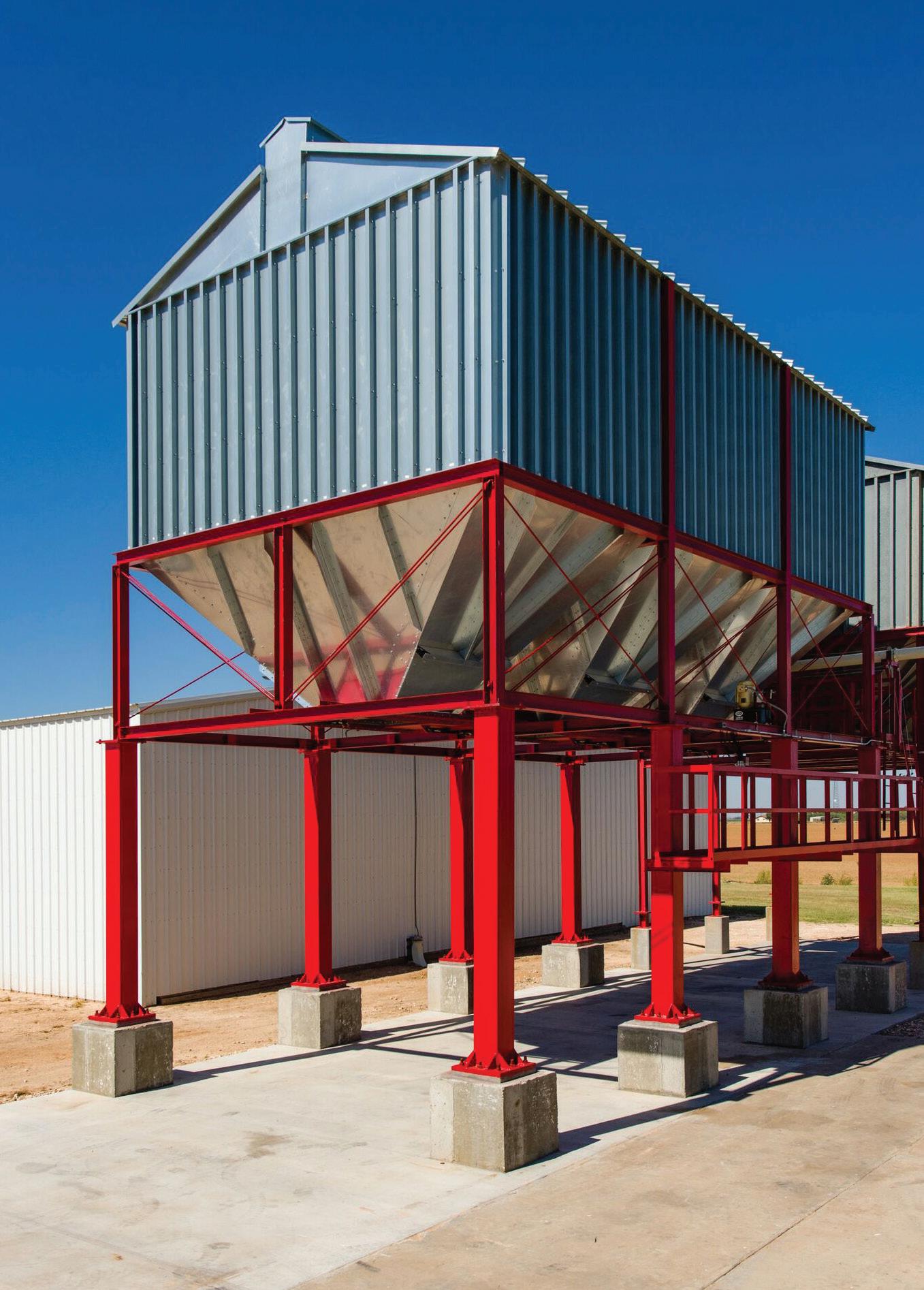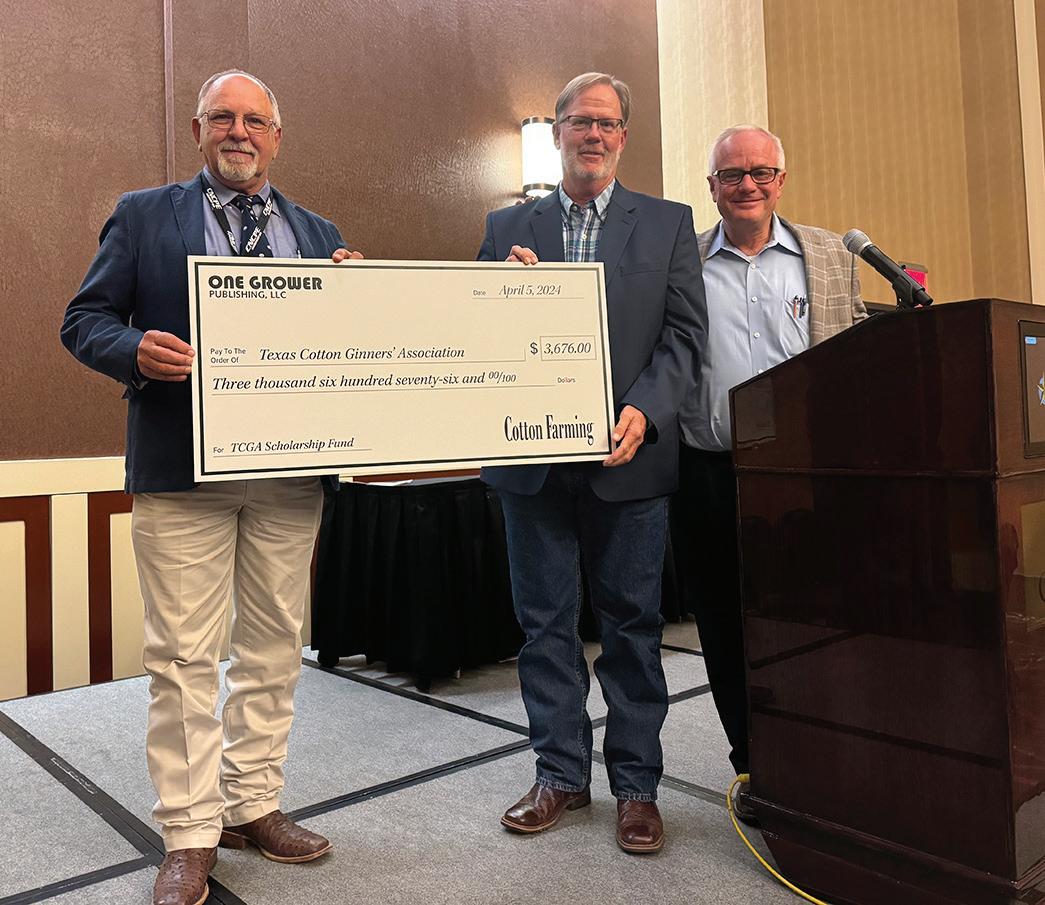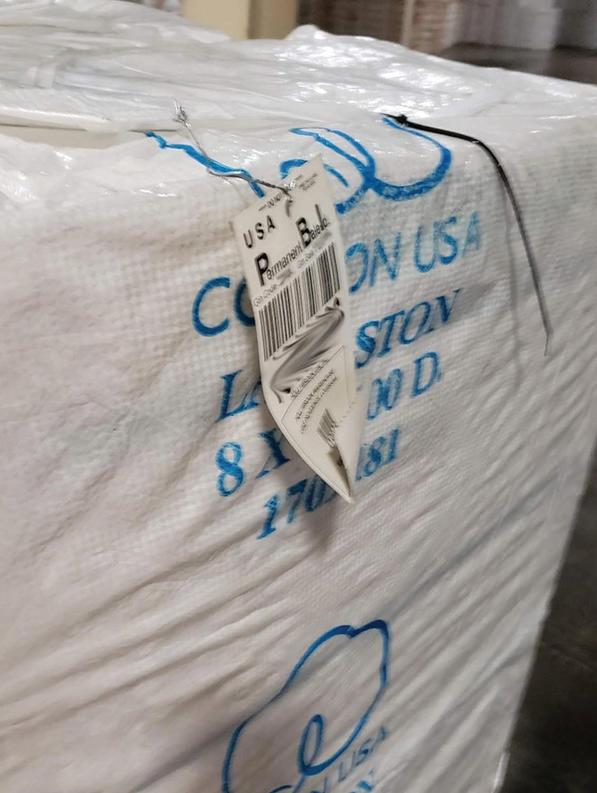TCGA/Texas Tech Scholarship Fund Helps Grow Cotton Industry’s Future
Cotton Farming magazine, co-sponsor of the Texas Cotton Ginners’ Association Gin Show recently contributed $3,676 to the TCGA/Texas Tech Scholarship Fund.
TCGA Executive Vice President J. Kelley Green, right, and TCGA President Mike Thompson, left, accept the check from One Grower Publishing Associate Publisher/Sales Scott Emerson at the Awards Banquet at the Overton Hotel in Lubbock. Each year the magazine donates a portion of revenue from ad sales in the TCGA printed show program.
“TCGA is proud of our partnership with Cotton Farming magazine on the TCGA Scholarship program,” Green said. “This program is an investment in the future of Texas Tech students and the cotton industry. We believe these scholarships are crucial to our e orts in developing the next generation of agricultural leadership in agriculture.”
On the upcoming schedule, the Texas Cotton Ginners’ Association Summer Membership Meeting will be held at Live! By Loews, 1600 E Randol Mill Rd., Arlington, Texas, June 1618. Don’t miss out on the chance to enhance your knowledge, build valuable connections and have fun at this summer event.


“Trucks
Cotton Ginners Marketplace 20 COTTON FARMING MAY 2024 COTTONFARMING.COM
Steeper Hoppers with 10-Gauge Steel 50% Larger Square Hydraulic Doors Conversion Kits for Most Seed Houses Call Jim - (972) 381-8899 / cliffgranberrycorp.com ELEVATED SEED HOUSE
new seed house”.
wet seed
out
problem.” North Delta Gin Company,Marks, MS MINIMIZE SEED BRIDGING • SAFER • FASTER • STRONGER
are loaded and tarped in just 5 to 10 minutes with our
Even
comes
without a
COTTON
COTTON FARMING IS THE OFFICIAL PUBLICATION OF THE GINNING INDUSTRY.
Ginners Marketplace
NCGA Chooses New Leader During Its 2024 Annual Meeting
The Memphis-based National Cotton Ginners Association named its leaders for 2024 during its annual meeting in Orlando, Florida.

The NCGA’s 2024 o icers are: president – Richard Lindsey, Centre, Alabama; first vice president – Larry Black, Roscoe, Texas; second vice president – Brad Williams, Burlison, Tennessee; and third vice president, Tom Pires of Riverdale, California. Harrison Ashley, Cordova, Tennessee, is NCGA’s executive vice president. Lindsey, previously the first vice president of NCGA, is active in the ownership and management of Cherokee Gin and Cotton Company in Centre. He also is a partner in his family farming operation known as Coosa River Land Company. He was born into a cotton farming and ginning family that traces back to the 1830s.
In addition to his cotton background, he also served his area in the Alabama House of Representatives for 35 consecutive years. He received numerous awards during his legislative career including Legislator of the Year and The Lifetime Legislative Leadership Award.
Lindsey graduated from Jacksonville State University with a degree in business management. He has served in multiple NCGA and NCC leadership positions among them as a NCC director and a director of NCC’s export promotion arm, Cotton Council International.
Paper PBI Hand Tags To Be Phased Out
The Joint Cotton Industry Bale Packaging Committee (JCIBPC), chaired by Chris Berry, a Wellman, Texas, ginner, had its 2024 Annual Meeting in Memphis. During this meeting, the committee approved the updated 2024 Bale Packaging Specifications and set a phase-out date for paper PBI hang tags.

Following the 2024 crop year, only adhesive type PBI tagging will be approved for use per the Bale Packaging Specifications (https://www.cotton.org/tech/bale/specs/index.cfm) and the PBI Tag Specifications (https://www.cotton.org/tech/ bale/upload/24-2-28-22-Specifications-for-Permanent-BaleIdentification-Bale-Tags.pdf.).
This information was provided by The Ginnery, the Texas Cotton Ginners’ Association monthly e-newsletter.
California Leads The Nation On Worker Safety
The Occupational Safety and Health Administration website says that California administers the largest state OSHA plan in the nation and consistently exceeds its inspection goals to protect millions of workers each year.
The Division of Occupational Safety and Health (DOSH), better known as Cal/OSHA, protects and improves the health and safety of working men and women in California and the safety of passengers riding on elevators, amusement rides and tramways – through the following activities:
• Setting and enforcing standards.
• Providing outreach, education and assistance.
• Issuing permits, licenses, certifications, registrations and approvals.
Walking/Working Surfaces Regulation
According to the California Cotton Ginners and Growers Association, the Cal/OSHA Standards Board is working on the fourth draft of its Walking/Working Surfaces Regulation. These revisions are necessary to meet Federal OSHA requirements and prevent falls. The association’s President/CEO Roger A. Isom was asked by Cal/OSHA to sit on the advisory committee and will be participating.
Walking/Working Surfaces include but are not limited to:
• Floors
• Stairways
• Steps
• Roofs
For the past three years, sta has been directed to work with the industry’s tagging suppliers to determine the usage of hanging PBI tags. During this period, usage of paper tags has declined from nearly 900,000 tags to 215,000 in 2023. These tags, which are held on the bale with small gauge wire or zip ties, can cause damage to mill machinery and pose potential fire risk if accidently left in a bale. Due to these issues, the Specifications for Bale Packaging Materials were amended in 2023 to say, “Small gauge wires on bale tags are not recommended.”
Following this year’s report on tag usage, the committee determined hanging PBI bale tags that use small gauge wire or zip ties are to be removed as an approved product from the specifications after the 2024 crop year.
• Ramps
• Runways
• Aisles
• Sca olds
• Dock plates
• Step bolts
The draft proposal would revise and update several safety orders, including definitions, guardrails and toeboards, guard rails and fall protection at elevated levels, personal fall protection systems and falling object protection. Other revisions and updates would include fall protection training requirements, roof and floor openings, service pits, and yard surface openings, stair railings and handrails and stairways.
Agricultural buildings including cotton gins, tree nut hullers and processors and packing houses all will be a ected by the proposed changes. The latest FedOSHA requirements were adopted in 2017 and Cal/OSHA must adopt these changes.

Cotton Ginners Marketplace INSTAGRAM: @COTTONFARMINGMAGAZINE MAY 2024 | COTTON FARMING 21 *****
*****
*****
informative email summary of your gin’s daily performance.
An
for an example report
Text 662-809-9730
Richard Lindsey





